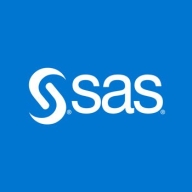

Pentaho Data Integration and Analytics and SAS Access compete in the data management and analytics space. Pentaho often has the upper hand in pricing and support, being more cost-effective and flexible, while SAS Access is preferred for its robust analytics justifying its higher price.
Features: Pentaho offers a comprehensive suite of data integration tools, ease of use, and open-source flexibility, supporting various data sources efficiently. SAS Access is known for its powerful statistical analysis features, and its seamless integration with other SAS products, providing a closed, comprehensive analytics environment. Pentaho's open-source nature allows for customization, making it adaptable to diverse enterprise needs. SAS Access's advanced analytics cater to businesses requiring detailed insights and precise data interpretation.
Ease of Deployment and Customer Service: Pentaho allows quicker deployment thanks to its extensive documentation and community-driven support, fostering a collaborative development environment. In contrast, SAS Access has a more rigid deployment process but offers premium customer support services, ensuring a smooth implementation. While Pentaho focuses on community support, SAS Access provides direct customer service, enhancing user experience.
Pricing and ROI: Pentaho's lower setup costs are attractive for organizations seeking high ROI without significant upfront investments. SAS Access, with higher initial costs, offers strong returns through its broad analytics capabilities and quality support, making it appealing to companies investing in extensive analytical power.
| Product | Market Share (%) |
|---|---|
| Pentaho Data Integration and Analytics | 1.7% |
| SAS Access | 0.4% |
| Other | 97.9% |


| Company Size | Count |
|---|---|
| Small Business | 17 |
| Midsize Enterprise | 16 |
| Large Enterprise | 25 |
Pentaho Data Integration stands as a versatile platform designed to cater to the data integration and analytics needs of organizations, regardless of their size. This powerful solution is the go-to choice for businesses seeking to seamlessly integrate data from diverse sources, including databases, files, and applications. Pentaho Data Integration facilitates the essential tasks of cleaning and transforming data, ensuring it's primed for meaningful analysis. With a wide array of tools for data mining, machine learning, and statistical analysis, Pentaho Data Integration empowers organizations to glean valuable insights from their data. What sets Pentaho Data Integration apart is its maturity and a vibrant community of users and developers, making it a reliable and cost-effective option. Pentaho Data Integration offers a range of features, including a comprehensive ETL toolkit, data cleaning and transformation capabilities, robust data analysis tools, and seamless deployment options for data integration and analytics solutions, making it a go-to solution for organizations seeking to harness the power of their data.
We monitor all Data Integration reviews to prevent fraudulent reviews and keep review quality high. We do not post reviews by company employees or direct competitors. We validate each review for authenticity via cross-reference with LinkedIn, and personal follow-up with the reviewer when necessary.